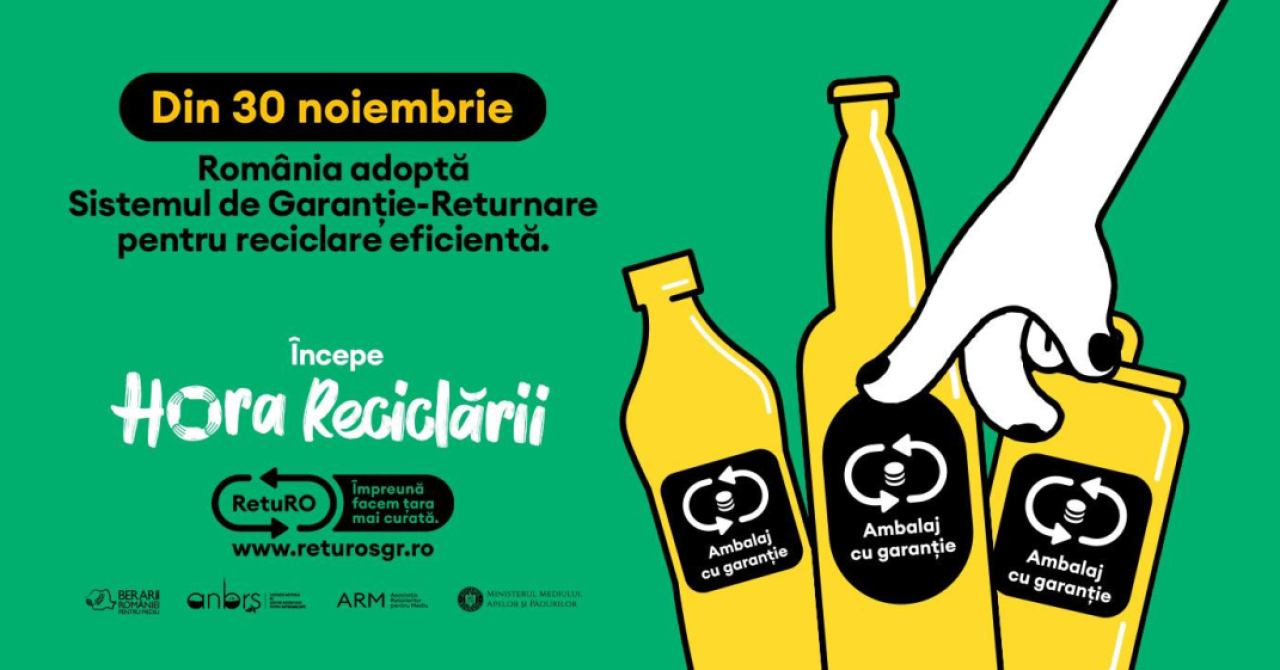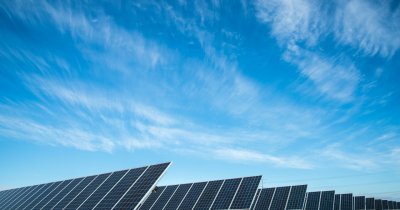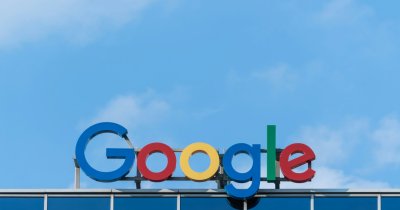RetuRO announced back on November 30th, 2023, the launch of the DRS in Romania, the country's largest circular economy project to date. Starting from that date, customers paid 0,50 RON worth of guarantee per beverage packaging made of glass, plastic or metal, with a storing capacity between 0,1 and 3 liters.
The packaging in question have been and will continue to be marked with the symbol "Packaging with Guarantee", indicating they are eligible for the system. Recovering the guarantee will only be possible when the packaging is labeled properly.
The products that are part of the DRS system will slowly make their way to stores, supermarkets and hypermarkets over a few months, depending on the stock of non-DRS packaging on the market.
One of the misconceptions Romanians have when it comes to returning beverage packaging to the RVMs is that that's where the recycling process starts. In fact, RetuRO explains that this is the moment when the packaging is being compacted, so that it can be stored and transported easier. Compacting the packaging allows to store more units, which makes collection more efficient. The second reason packaging is being compacted is to avoid fraud, because if the bottles were to remain in their original form, they could be removed from the machine and reintroduced.
Glass bottles are being broken into small pieces when introduced in the RMVs for the exact same reason.
Recycling of the packaging actually begins after they leave RetuRO's sorting centers to the recycler's facilities, which for glass there are two, Green Glass Recycling and Terra Blue, as per RetuRO officials. For plastic, there are three main companies that collaborate with Romania's DRS administrator to reprocess PETs.
At the same time, if in a specific location there is no RVM to collect the bottles, manual collection is also possible.
How do we prepare the bottles for collecting
After the drink is being consumed, it is important that the bottle is completely empty, but not washed and its shape must be identical to when the product was first purchased, so that the RVM can accept it. If the customers compact the bottles themselves, they risk damaging the label and the bar code, which would compromise the ability to recover the guarantee using the RVM system.
At the same time, if the bottle's cap is squeezed to tightly, its shape can change ever so slightly, so that RetuRO officials suggest we tighten the cap moderately, but not completely. At the same time, bottles that have missing caps can also be returned, since RetuRO's RVMs are able to register the weight of a product with, but also without its cap. This is because, as per the representatives of the DRS administrator, the recycling of the container isn't dependent on the cap.
RetuRO's teams start collecting packaging from shops once they collect three bags of returned packaging, even if the sorting happens manually. At the same time, merchants who operate in spaces that are too small to store bags can associate between them to take in a larger amount of packaging, under the condition that the distance between the stores isn't larger than 200 meters.
Even if a merchant refuses to take in packaging from customers due to lack of space or other reasons, experts at RetuRO believe that this could prove to be a competitive disadvantage, as customers who come to return packaging usually intend to go in and purchase something, as well. Thus, stores that choose to collect the packaging themselves, even if this means sacrificing some space, might enjoy a higher number of customers.
Can I take own brand products to another store?
Every large supermarket or hypermarket chain in Romania has its own brand products for drinks and not only, even if we talk about water, juice or alcohol beverages. RetuRO explains that this packaging can be returned to any store in the country, even if it's not the same company that owns it.
The problem surfaces when a merchant decides not to introduce that product in the DRS and the RVM refuses to take the bottle in for collection, even if the label is correct. At the same time, if the manufacturer didn't follow the labeling instructions for that specific product, the machines will not be able to read the barcode properly and thus, refuse collection.
But why do RVMs get filled quicker during weekends than mid-week? The explanation might be that the flow of customers is higher during weekends, which is why collecting machines reach their limit faster and the IT system hasn't been properly updated yet to communicate when that happens.
After the remaining stocks of non-DRS packaging will deplete, RetuRO experts estimate that on the Romanian market there will be around 7 billion beverage packaging eligible for the DRS. This translates to around 600 million bottles per month available in stores.
To be able to collect and process all of them, the company reports that the initial 17 centers wouldn't be needed anymore, but rather just 10 of them.
Currently, there are three of these centers, one in Cluj, one in Timișoara and another in Bucharest, while another one will be soon opened in Brașov. Sorting centers currently implemented by RetuRO can process around 1,4 billion packaging yearly, more than the number of bottles that is estimated to reach the market.
Some of the centers that remain to be opened will be dedicated only to counting and temporary storing of the returned bottles, so that these can be transported to the larger sorting centers and then, to recyclers.
 Mihai - Cristian Ioniță
Mihai - Cristian Ioniță












Any thoughts?